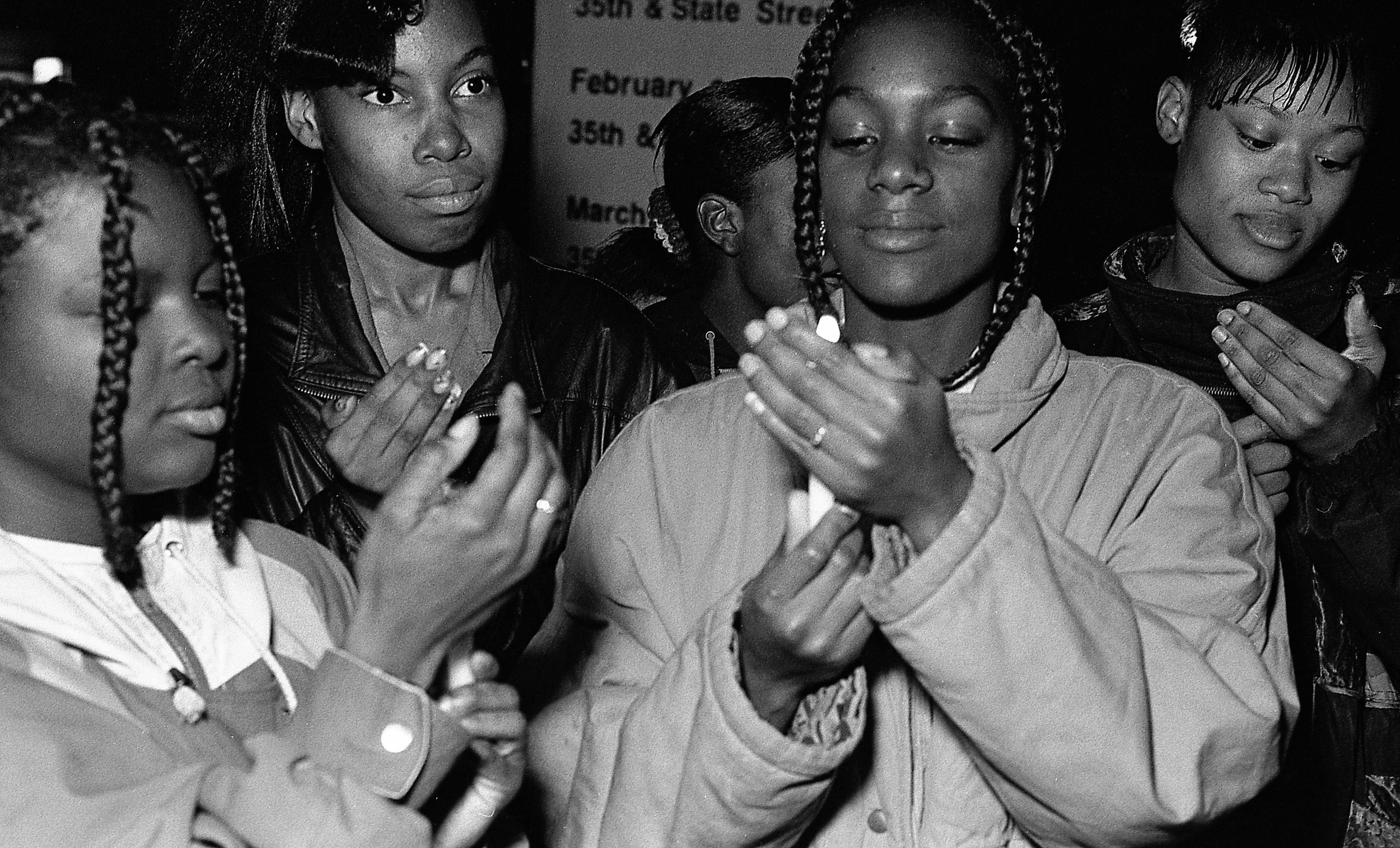
Beneath the Surface
a data science project that investigates the intersections of gender-based violence and policing
We are a team of data analysts, journalists, artists, organizers, and survivors in Chicago who investigate state violence against Black women and girls. Through our data science and narrative justice practices, we are working to expand the public conversation about unconstitutional policing beyond the fatal shootings of Black men.
Our aim with Beneath the Surface is to emphasize that each complaint record alleging police misconduct is also a deeply personal story of a person’s encounter with the police.
Our goals are to unearth patterns of burying human rights violations, support survivor’s accounts using data analysis, expand the discussion about police misconduct, and demonstrate the importance of making these investigative records available to the public.
Last summer, documentary filmmaker cai thomas followed our Data Director trina reynolds-tyler through her exploration of Chicago Police complaint records as she guided hundreds of volunteers to identify instances of police neglect and violence: the basis of our Beneath the Surface project. cai also captured the 2022 We Walk for Her march - an annual gathering on the South Side of Chicago to raise awareness and demand justice for missing and murdered Black women. PBS Independent Lens recently released this short documentary as part of its Bridge Builders series.
Who Is Behind Beneath the Surface?
trina reynolds-tyler is a data scientist, a journalist, and a native of the South Side Chicago.
trina leads Beneath the Surface and works to document how communities unable to depend on the police are forced to create safety and accountability outside of the carceral state. As a data scientist, she centers the practice of narrative justice in her inquiries.
trina is an abolitionist and trained restorative justice practitioner, an organizer with Not Me We, and is serving on a University of Chicago council attempting to measure the institution’s impact on local residents of the South Side. She developed the skills to use data science for real world problems as a Pozen Center for Human Rights intern with the Human Rights Data Analysis Group (HRDAG) and was a Pearson Institute Fellow. trina holds a masters degree in public policy from the University of Chicago.
She has spoken at the Yale Access and Accountability Conference (2022), Stanford Women in Data Science (2023), and gave the Community Keynote at the ACM Conference on Fairness, Accountability, and Transparency (ACM FAccT) (2023).
trina meets regularly with our partners at the Human Rights Data Analysis Group to share code and improve technical skills. Together we have created a data practice that is replicable, auditable, scalable, and transparent.
We are indebted to HRDAG and send special thanks to the data science team who helped launch this project:
Tarak Shah, Rajiv Sinclair, Ola Giwa, Gabrielle Bozarth, Larry Barrett, Sukari Stone, and Patrick Ball
We are deeply grateful to more than 200 volunteers who read and tagged complaints weekly throughout 2021, bearing witness to repetitive, horrifying testimonies of violence at the hands of Chicago Police. We are grateful to each volunteer for their time and commitment, and to build a community that together seeks redress for local human rights abuses.
A special thanks to Lucy Parsons Labs volunteers Philipp Birklbauer and Matt Chapman for their technical work making thousands of documents from the Green case usable for this project.
Additional thanks and credit go to the following collaborators:
Chaclyn Hunt, Andrew Fan, Maira Khwaja, Anwuli Anigbo, Asha Futterman, Emma Perez, Jamie Kalven, Alison Flowers, Patricia Evans, and Matt Muse




